HTIC
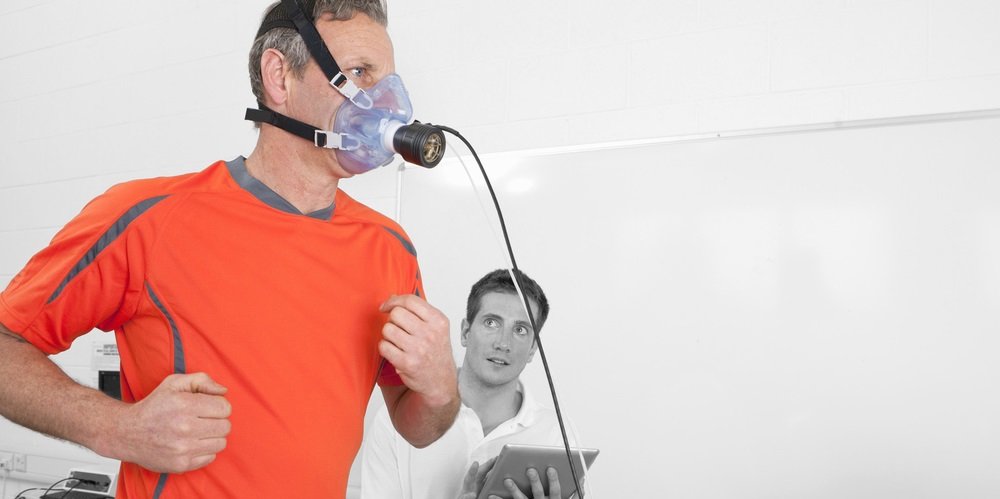

Presentation by Prof. Serge Bignens (Berner Fachhochschule, Switzerland)
Title : MIDATA, une plateforme de développement mHealth et une gouvernance de la gestion de données personnelles au services de projets de recherche suisses et européens
Abstract : Les données sont le nouveau pétrole et le moteur d’une nouvelle économie, ceci génère un nombre important de challenges pour la société en général et pour la recherche et l’innovation en particulier. MIDATA est à la fois une structure coopérative et une plateforme informatique sécurisée, qui offre la possibilité d’héberger des projets de recherche dans les domaines médicaux, sociaux et de l’éducation. Elle offre également la possibilité aux participants de gérer leur données personnelles via un portail, ainsi qu'une famille d’applications mobiles. Elle permet de mettre tout ou partie de leur données sous forme anonymisée ou pseudonymisée à disposition de chercheurs, selon des plans d’étude définis et approuvés par un comité d’éthique. La présentation adressera les points liés à l’architecture back-end basée sur de la cryptographie, l’architecture front-end web et mobile, la structure des données basée sur le standard HL7 FHIR, la gouvernance, séparant la gestion des données selon un modèle non-lucratif d’intérêt publique de la gestion des services à valeur ajoutée proposés par des startups ou instituts de recherche, les modèles d’affaire et la demi-douzaine de projets de recherche en cours. La plateforme et l’éco-système MIDATA sont ouverts à tout partenaire, suisse ou européen, académique ou industriel
Presentation : https://www.slideshare.net/secret/CjQWpK4NJwnv5J
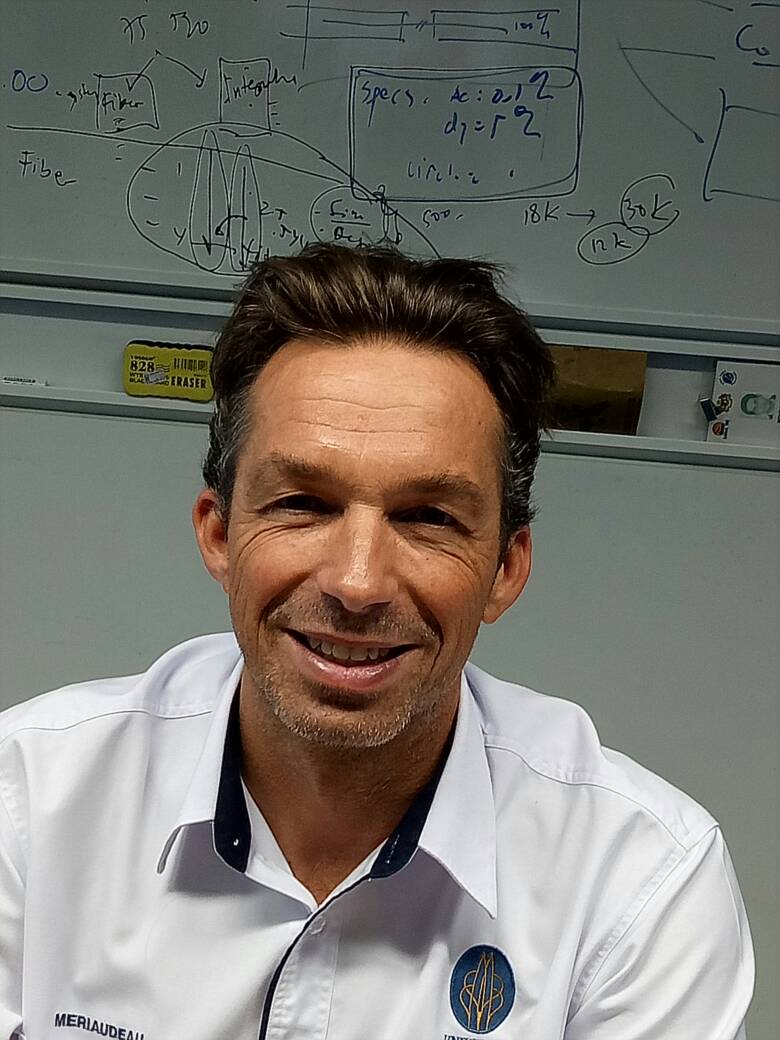
Presentation by Prof. Fabrice Meriaudeau (Universiti Teknologi Petronas, Malaysia)
Title : Computer aided diagnosis for retina related diseases
Abstract : Diabetic retinopathy, Age-related macular degeneration as well as glaucoma are the main retinal diseases. Suffering from these can lead to blindness and their progression in developed and developing countries raises high concerns. Therefore, effective and early diagnosis and treatment are highly desired. Currently, retinal medical imaging is one of the main diagnostic means for eye diseases. This talk will address the latest Computer Aided Diagnosis techniques applied to fundus images as well as to spectral-domain optical coherence tomography (SD-OCT) for the screening of the aforementioned diseases. It will cover the basis of preprocessing to machine learning with approaches based on Bag of Features, Bag of Word, vessel segmentation as well as atlas segmentation and deep learning.


Presentation by Adrien Alberini and Vincent Pfammatter (sigma legal, Switzerland)
Title : Upcoming Framework Governing the Protection of Personal Data and High-Tech Projects: Striking the Right Guidance and Balance?
Abstract : The EU data protection framework has been significantly revised and the new regulation – commonly referred to as the “GDPR” – will enter into effect on May 25, 2018. The aim of this revision was to adapt data protection law in accordance with the technological evolution that took place over the past 20 years. Switzerland could not ignore this trend and is following the EU path. In a nutshell, the new rules mean more obligations for data controllers, the empowerment of data subjects and additional powers granted to authorities. Against this background, and taking also into account more specific rules such as the provisions governing research activities in Switzerland, our presentation will address the question of which data that may be gathered in high-tech projects (such as data gathered on social networks or data stemming from crowdsensing and geolocation tools) qualify as personal data. We will further discuss the collection and use of data by controllers in specific environments such as within a hospital or a research lab (including for instance in relation to machine learning), as well as the relating question of the type of consent that may have to be obtained from data subjects. As a final and more fundamental note, we will deal with the point as to whether the right balance between the interests of data subjects and the freedom of scientists to innovate has been stricken in the upcoming data protection framework.
Presentation : https://hes-so.allinone.io/media/document/2/presentation-sigma-legal-hes-so-v.-02.10.17.pdf?1506955445
Presentation by Prof. Fusheng Wang (Stony Brook University, USA)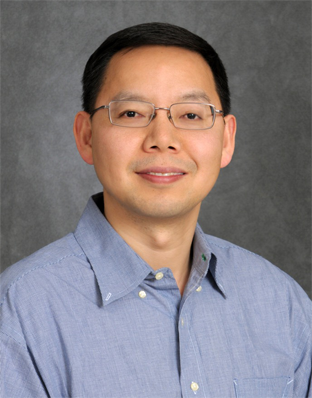
Efficient Data Management for Analytical 3D Digital Pathology
Abstract:
The rapid and significant advancement in large-throughput tissue scanning technologies has enabled production of pathology imaging big data at cellular and subcellular levels. Digital pathology provides extreme scale quantitative data with high potential for basic research in a wide scope, and becomes an emerging technology promising to support computer aided diagnosis. In particular, 3D digital pathology is made possible through slicing tissues into serial thin sections. In this talk, we will introduce the major challenges on 3D data management for 3D pathology data, and present a promising in-memory based spatial data management framework to support scalable and effective 3D spatial queries for large-scale 3D pathology imaging data.
Bio:
Dr. Fusheng Wang is an assistant professor at Department of Biomedical Informatics and Department of Computer Science at Stony Brook University. He received his Ph.D. in Computer Science from University of California, Los Angeles, and M.S. and B.S. from Tsinghua University, China. Prior to joining Stony Brook University, he was an assistant professor at Emory University. He was a research scientist at Siemens Corporate Research (Princeton, New Jersey) before joining Emory University. Dr. Wang’s research interest includes big data management and analytics for complex big data at multiple dimensions. His research on biomedical informatics includes pathology imaging informatics, big spatial data driven public health studies such as drug abuse, and clinical natural language processing.
Homepage: http://fushengwang.net
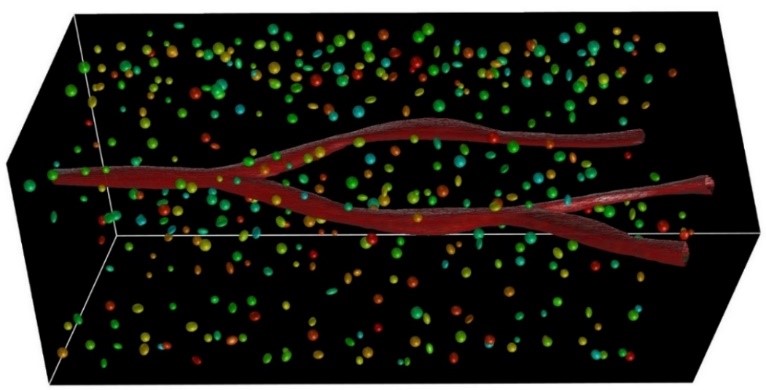

Presentation by Camille Kurtz (Université Paris Descartes, France)
Semantic image indexation and retrieval in medical databases for clinical decision support
Information retrieval based on image content can assist physicians by finding similar medical images in databases, as a means to providing clinical decision support. In general, images are indexed using low-level quantitative features (descriptors), and given a new query image, a similarity function is used to find the best matches in the feature space. However, using low-level features to capture the appearance of diseases in images is challenging and the semantic gap between these features and the high-level visual concepts in medicine may impair the system performance. This talk will present some prospective ideas to embed features of higher semantic levels and user feedback in image retrieval systems, with examples in the domain of Radiology, aiming to reduce the visual ambiguity when searching for similar images data.
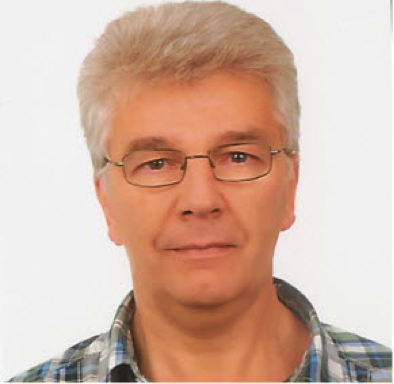 Presentation by Prof. Henk Verloo (HES-SO Valais-Wallis, Switzerland)
Presentation by Prof. Henk Verloo (HES-SO Valais-Wallis, Switzerland)
Technologies pour soutenir les personnes âgées à domicile avec des troubles cognitifs: un défi de taille et un enjeu éthique
 Presentation by Bruno Herbelin (EPFL, Switzerland)
Presentation by Bruno Herbelin (EPFL, Switzerland)
Cognitive Mechanisms Behind Presence and Embodiment in Virtual Reality
Immersion in virtual reality is challenging the multisensory brain mechanisms underlying the integration of bodily signals that are building up the experience of perceiving the world from an embodied perspective. Recent progress in cognitive neuroscience of bodily self-consciousness were based on the ability of technology to manipulate these mechanisms; what I propose to explore is how this research provides a deeper understanding of immersion, embodiment and sense of presence.
Bruno Herbelin is deputy director of the EPFL Center for Neuroprosthetics since 2012 (École Polytechnique Fédérale de Lausanne, Switzerland). He previously worked as senior researcher in virtual reality and cognitive neuroscience in the laboratory of Prof. O. Blanke at EPFL. From 2005 to 2009, he was Assistant Professor in the Medialogy Department of Aalborg University, Denmark. He obtained his PhD from the EPFL School of Computer and Communications in 2005 for his research work on virtual reality exposure therapy under the supervision of Prof. D. Thallmann. Originally trained as computer science engineer in artificial intelligence, he is working on virtual reality since his Master project in 1997.
Presentation by Roxane Licandro & András Jakab (University of Zurich Children’s Hospital, Switzerland)
Spatio Temporal Assessment of Developing Patterns: from Fetal MR Imaging to Flow-cytometry - Roxane Licandro 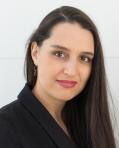
A key component of longitudinal analysis of the developing human is the modelling of trajectories, which encode the occurrence of dynamic changes over time. Developmental patterns form the main challenge, since they may be constituted of the incomplete or irregular observations, inter-patient variability and influencing factors like co-morbidity, age or individual treatment response. In this talk we provide an overview of techniques developed at the TU Wien and the Medical University of Vienna to assess trajectories in the fetal and paediatric brain development as well as in the progression of blood cell populations during leukaemia treatment in children. The focus lies on capturing dynamics of normal development and on developing methodologies to analyse the influence of pathology and treatment.
Roxane Licandro is currently a visiting Marie-Curie Fellow at the Center for MR-Research at the University Children’s Hospital Zürich and PhD candidate at TU Wien under the supervision of Martin Kampel and Georg Langs. She is research assistant at the Computer Vision Lab at TU Wien in the European project AutoFLOW (http://www.autoflow-project.eu/ ) and additionally affiliated to the Computational Imaging Research Lab at the Medical University of Vienna involved in neuroscientific and computational anatomy topics. Her research interests lie in the field of non-rigid registration, spatio temporal modelling, paediatric and fetal brain development, functional connectivity and plasticity and automatic MRD assessment in acute child leukaemia. She is member of the organising committee of the WiCV workshop held in conjunction with CVPR 2017 and professional student events officer at the MICCAI Student Board.
Towards augmenting prenatal clinical diagnosis using advanced fetal MRI and image analysis techniques - András Jakab 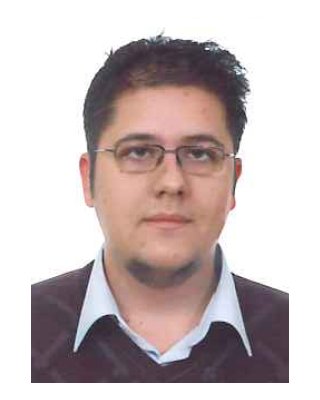
Recent advancements in prenatal magnetic resonance imaging (MRI) allow the depiction of the brain with previously unseen details, paving the way for the development of new, imaging-based markers of development. We present recent results of an interdisciplinary effort, which adapts medical image analysis methods to fetal MRI for basic and clinical research. Our current efforts include three directions in computational image analysis. First, the reconstruction of morphology using tri-planar T2-weighted MRI, allowing the depiction of the structure of the brain surface and ventricles using the “super-resolution” sampling. Secondly, prenatal diffusion tensor imaging (DTI), sensitized for diffusion-driven movements of water molecules, forms the basics of fetal brain tractography, which technique depicts the developing brain fibre structures in normal or pathological conditions. Eventually, we introduce surrogate approaches to measure perfusion of fetal organs and fetal brain activity in utero using IVIM-MRI and functional MRI. These approaches pose exciting problems for image processing, and can potentially facilitate a better clinical decision making process.
András Jakab, MD, PhD, is a senior postdoctoral scientist and radiologist-in-training. He leads clinically oriented projects at the University Children’s Hospital in Zürich that amalgamate medical image analysis, image-guided neurosurgery and neurodevelopmental science.
 Presentation by Daniel Cesarini (Scuola Superiore Sant'Anna Pisa, Italy)
Presentation by Daniel Cesarini (Scuola Superiore Sant'Anna Pisa, Italy)
Sonification technique and its possible employment in rehabilitation scenarios
Considerable interest is rising around the concepts of Data Science, Big Data, and Data Analytics. All have shown promise in terms of their ability to unveil "hidden" information from seemingly unmanageable amounts of data. In several domains, the capability of communicating results back to humans is tightly coupled with the capability of analyzing data and signals.
Nowadays, the need for means to make information available and accessible is constantly growing. For example, a special technique named sonification has been developed to systematically transform data into sound. Various signals (e.g., water pressure, or stock market values) are transformed into audible cues. By doing so, the elicited "information" is immediately usable and consumable by humans. In fact, functional sounds have been long used to provide immediate information to people. For instance, the "Geiger Counter", used to provide an acoustic representation of the amount of nuclear radiation in a given area, can be seen as a "rudimentary" example of sonification. Such application can be considered as a direct representation of cross-domain signal transformation (e.g., radiation which is not directly perceivable by humans to the auditory domain, perceivable by most people).
Among the possible application of the sonification technique it is worth to mention: (i) auditive representation of a data stream (e.g., an auditive seismogram); (ii) real-time sonification system (e.g., sonification of salient parameters of network activity); and (iii) interactively explore a data set (e.g., model based sonification).
In this talk, we will walk through the basics of sonification, focusing on practical applications. Particular emphasis will be spent on sonification of human motion and physical activities, providing application examples such as aquatic space activities (e.g., swimming). Finally, insights on existing and possible applications of sonification to rehabilitation will be provided.

Presentation by Alena Simalatsar (HES-SO Valais-Wallis, Switzerland)
The controlled delivery of intravenous anesthetics
The controlled delivery of intravenous anesthetics aims at fast and safe achievement and maintenance of a certain depth of hypnosis (DOH), correlated with the plasma concentration of the administered drugs (e.g. propofol, fentanyl or midazolam, etc.). Today, such drugs are regularly injected by Target Controlled Infusion (TCI) systems, piloted by quantitative predictions of plasma drug concentration based on pharmacokinetic (PK) models complemented with an algorithm, that based on the predicted output (e.g. drug concentration) adjusts the drug delivery rate in an open-loop manner. However, the inaccuracy of these models can reach up to 30-50% due to inter- and intra patients’ variability. Several attempts have been made to improve the situation by closing the loop with electroencephalogram (EEG) monitoring, deriving the bispectral index (BIS) associated to the DOH. However, BIS only indirectly depends on drug delivery rate, is delayed with respect to the changes of drug concentration in plasma, and can be affected by various sources of noise, which can lead to overdosing or unexpected awakening of a patient. In this talk I will present our approach, in which we close the loop by continuous measurement of anesthetics in patients plasma.

Presentation by Mathias Humbert (EPFL, Switzerland)
Reconciling Data Science with Privacy: The Case of Biomedical Data
The increasing availability of biomedical data brings great promises for the future of healthcare, enabling a more precise, preventive and personalized medicine. However, such availability and usage of very sensitive data also raises new concerns about privacy. In this talk, I will first briefly describe the various types of biomedical data in the human biological system. Then, I will present two recent data-driven projects: one on the temporal linkability of microRNA expression profiles, and another on the identification of DNA methylation profiles by genotype inference. I will describe how an attacker can jeopardize biomedical data privacy based on graph matching, Bayesian inference, and principal component analysis. Moreover, I will present various technical means - including differential privacy and encryption - to enhance privacy and, at the same time, preserve the utility of the machine-learning algorithms developed by bioinformaticians.
Presentation by Sandro Carrara (EPFL, Switzerland)
Bio/Nano/CMOS interfaces for Remote Monitoring of Human Metabolism
Integrated electrochemical Nano-Bio-Sensors for diagnosis and/or treatment of patients with specific physiological conditions (e.g., heart, cardiovascular, cancer diseases) or convalescents is a key factor to provide better, more rationale, effective and ultimately low-cost health care also at home. The ultimate goal of improved health care on those subjects is the extension of the patients’ autonomy, the possibility for auto-monitoring, the improvement of their comfort levels and their integration into everyday life. Some systems for on-line monitoring are available in the market. They use wearable devices (accelerometers, heartbeat monitoring system, etc). However, all these systems do not measure the human metabolism at molecular level (metabolites). The only available real-time, implantable/wearable systems for metabolic control are limited to glucose monitoring and used only for diabetic patients. However, electrochemical sensors may address so many other molecules, which have crucial relevance in human metabolism in chronic patients. So far, there are no available integrated nano-bio-systems for multi-metabolites, real-time, remote monitoring of the human metabolism. Thus, the talk will cover innovative concepts for multi-panel, highly integrated, fully implantable, remotely powered and real-time monitoring systems for human metabolism at molecular level.

Presentation by Prof. Jean-Noël Hyacinthe (EPFL, Switzerland)
Novel theranostic approaches for stroke using hyperpolarized MRI
Stroke is the third leading cause of death worldwide and the leading cause of disability in the adult. Stroke incidence increases with age and therefore it is a major public health challenge in the context of the current demographic changes. Despite promising preclinical results of neuroprotective strategies targeting ischemic cell death mechanism, all clinical neuroprotection trials failed so far to improve the outcome in ischemic stroke patients.
Cerebral perfusion and metabolism are essential for normal brain function and are both disturbed in cerebral ischemia. The aim of this project is to take advantage of hyperpolarization to boost the magnetic resonance (MR) signal of two neuroprotectants, namely xenon and lactate, at therapeutic doses in an animal stroke model, to give insight into the >mechanisms of neuroprotection, an important step in the perspective of a clinical trial.